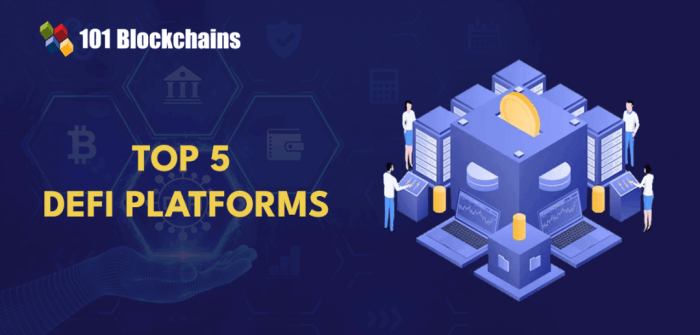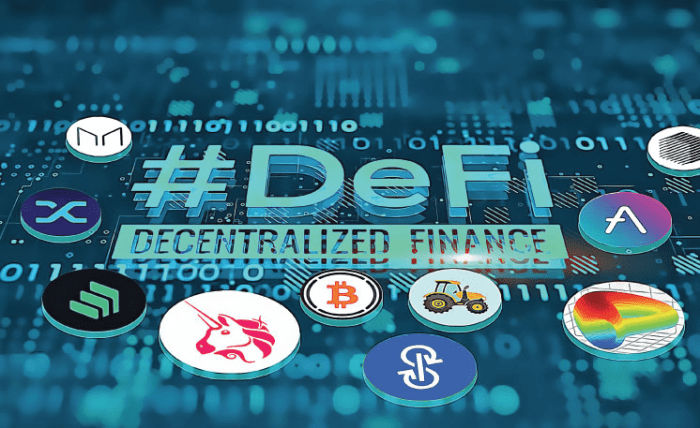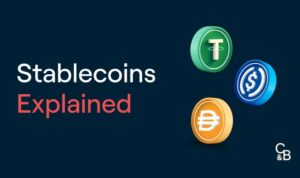With DeFi platforms paving the way, get ready to dive into a world where finance meets innovation. From redefining traditional systems to empowering users, this journey promises excitement and endless possibilities.
Overview of DeFi Platforms
DeFi platforms, short for Decentralized Finance platforms, are digital platforms that provide financial services using blockchain technology. They aim to offer traditional financial services such as lending, borrowing, trading, and investing in a decentralized manner without the need for intermediaries like banks or financial institutions.
Key Features of DeFi Platforms
- Decentralization: DeFi platforms operate on decentralized networks, eliminating the need for a central authority.
- Transparency: All transactions on DeFi platforms are recorded on a public blockchain, ensuring transparency and accountability.
- Interoperability: DeFi platforms allow users to interact with multiple protocols and applications seamlessly.
- Accessibility: Anyone with an internet connection can access DeFi platforms, promoting financial inclusion.
Benefits of Using DeFi Platforms
- Financial Inclusion: DeFi platforms provide access to financial services for individuals who are underserved or excluded from traditional financial systems.
- Lower Costs: DeFi platforms often have lower fees compared to traditional financial services, making them more cost-effective for users.
- Security: Transactions on DeFi platforms are secured using cryptographic technology, reducing the risk of fraud and hacking.
- Control: Users have full control over their funds on DeFi platforms, as they do not rely on third parties to manage their assets.
Popular DeFi Platforms

When it comes to decentralized finance (DeFi) platforms, there are several well-known players in the market, each offering unique features and benefits to users. Let’s take a closer look at some of the most popular DeFi platforms and what sets them apart.
1. Uniswap
Uniswap is a decentralized exchange (DEX) that allows users to trade a wide range of tokens without the need for a central authority. Its unique selling point lies in its automated market maker system, which enables users to provide liquidity and earn fees in return. Uniswap offers a simple and intuitive user experience, with high liquidity for various tokens. However, security concerns have been raised in the past due to potential vulnerabilities in smart contracts.
2. Compound
Compound is a lending platform that allows users to earn interest on their digital assets by supplying them to the protocol. One of its key features is the ability to borrow assets against supplied collateral. Compound is known for its transparent and efficient interest rate mechanism, providing users with a seamless borrowing and lending experience. However, users should be cautious about the risks associated with borrowing and lending in DeFi platforms.
3. Aave
Aave is a decentralized lending platform that offers unique features such as flash loans and variable interest rates. Users can borrow and lend a wide range of assets, with the option to switch between fixed and variable interest rates. Aave is praised for its robust security features and innovative functionalities, making it a preferred choice for many DeFi enthusiasts. However, users should still exercise caution and conduct thorough research before participating in any DeFi activity.
4. MakerDAO
MakerDAO is a decentralized autonomous organization (DAO) that operates the stablecoin DAI. Users can generate DAI by locking up collateral assets in the MakerDAO system. One of its main selling points is the stability of DAI, which is pegged to the US dollar through a combination of smart contracts and oracles. MakerDAO’s governance model allows users to participate in decision-making processes, adding a layer of decentralization to the platform. However, users should be aware of the potential risks associated with collateral liquidations and governance changes.
How DeFi Platforms Work
DeFi platforms operate on advanced technology to facilitate decentralized financial transactions without the need for intermediaries.
Underlying Technology
DeFi platforms are powered by blockchain technology, specifically smart contracts, which are self-executing contracts with the terms directly written into code. This automation eliminates the need for intermediaries and ensures transparency and security in transactions.
Smart Contracts in DeFi
- Smart contracts play a crucial role in DeFi platforms by automating the execution of financial agreements.
- They enable users to interact directly with the platform without relying on a central authority.
- Smart contracts ensure that transactions are secure, efficient, and transparent.
Lending, Borrowing, Trading, and Staking
On DeFi platforms, users can engage in various activities:
- Lending: Users can lend their crypto assets to others and earn interest in return.
- Borrowing: Users can borrow crypto assets by providing collateral, enabling access to funds without involving traditional financial institutions.
- Trading: Users can trade a wide range of digital assets directly on DeFi platforms without the need for a centralized exchange.
- Staking: Users can participate in staking to help secure the network and earn rewards in the form of additional cryptocurrency tokens.
Risks Associated with DeFi Platforms

When engaging with DeFi platforms, users should be aware of potential risks that could impact their investments and transactions.
Smart Contract Vulnerabilities and Security Breaches, DeFi platforms
Smart contracts are the backbone of DeFi platforms, but they are not immune to vulnerabilities. Any coding errors or loopholes in smart contracts can be exploited by malicious actors, leading to security breaches and financial losses for users.
Impact of Market Volatility on DeFi Platforms
DeFi platforms are highly sensitive to market fluctuations and volatility. Sudden price changes in cryptocurrencies or assets can affect the value of investments and collateral on these platforms, potentially leading to significant losses.
Strategies to Mitigate Risks while using DeFi Platforms
1. Conduct thorough research before investing in any DeFi platform to understand the risks involved.
2. Diversify your investments across different platforms to reduce the impact of potential losses.
3. Use hardware wallets or cold storage solutions to secure your assets offline and minimize the risk of hacking.
4. Stay informed about the latest developments in the DeFi space and be cautious of new projects with unknown security measures.
5. Consider using insurance services or decentralized risk management protocols to protect your investments in case of unforeseen events.


